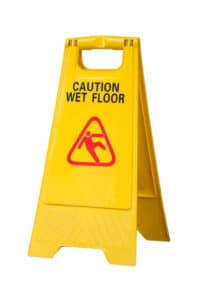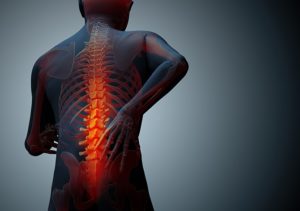In most personal injury and auto accident cases, the victim will face questions from the other party’s legal team and insurance company about pre-existing injuries before the accident. People assume that the victim was completely healthy before the accident, although that is rarely true. Most people deal with injuries or health conditions, major or minor, throughout their life and it may be right before the accident. Injuries can vary, some being mental, some being physical, and some being a combination of the two. Generally, victims are not entitled to compensation for injuries and conditions that occurred before the incident happened. However, victims may be entitled to compensation for pre-existing injuries that were made worse due to the accident.
Disclosing Prior Injuries
It is important that people involved in accidents or injury cases are honest with their attorneys about their injuries or prior injuries. Failing to disclose previous injuries can work against you, as your chances of a fair settlement may be diminished. Disclosing prior injuries is essential because if they were significantly worsened due to the accident or injury, you may receive additional compensation for it. Also, doctors can look deeper into the previous injury and how it was aggravated due to the new accident, making your chances greater for compensation. As a victim, you should never feel discouraged to disclose prior injuries or conditions. Having detailed and complete medical records of your previous injury or condition can substantially change the current case and the compensation you may receive because of it.
The Eggshell Theory
A person’s pre-existing injury or condition may make them more susceptible to an injury in an accident. However, that doesn’t mean that they are less entitled to compensation because of that. In the “eggshell theory,” defendants must take plaintiffs as is, and they are not allowed to use the plaintiffs’ previous injuries during injury attribution. This rule applies to all personal injury and auto accident claims, and it states that the fragility of the injury victim is not a valid defense against a claim. According to the “eggshell” rule, defendants are liable for all damages that stem from their negligent actions, even if they had no idea about the victim’s previous conditions and that it played a role in affecting the severity of the injury. It is essential that the victim explains his or her conditions after an accident to their medical and legal team to be properly treated and accurately compensated.
Proving Prior Injuries
Although every case is unique, prior injuries offer a set-in-stone way for judges and lawyers to see how the victim has suffered because of a subsequent event. It is important that your lawyer works with your medical team to provide an honest and complete documentation of your prior condition or injury. Your attorney will attempt to establish the degree to which the accident worsened your prior injury or condition, minor or major. Providing detailed medical records proves your prior injuries or conditions and gives you a greater chance for compensation.
You should never feel discouraged to disclose a prior injury in order to pursue compensation, as it is completely normal for people to have their previous conditions or injuries worsened due to an accident. Nothing is more important than one’s health, and understanding the severity of an injury, the treatment for the injury, and the time an injury takes to heal is very important for the person and the lawyers to understand. If you have been injured due to someone’s negligence, it is important that you seek a qualified legal team to help you receive compensation. At Richard Harris Law Firm, our attorneys understand the legal system better than anyone else, and will help you get back on your feet. We will help you recover compensation for your pain and suffering, but if you have a pre-existing injury, don’t let that derail you from pursuing a personal injury claim. We will aggressively fight the charges for you and detail medical records and other important evidence in order for you to receive the correct compensation.





























